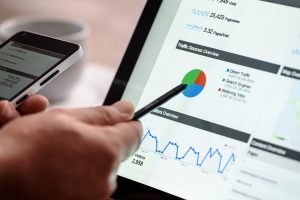Opinion | We Spoke With 5 People Who Work With A.I. Here’s What Keeps Them Up at Night.

Roman Yampolskiy
Computer scientist
Human minds are static. They don’t improve much. A.I. gets better every day. More memory. Faster. More efficient. Doesn’t repeat the same mistakes.
Roman Yampolskiy
Computer scientist
If another A.I. somewhere learns something, they can quickly share that information.
Roman Yampolskiy
Computer scientist
Like the difference between an ant and a human. An ant cannot fully comprehend what we’re doing.
Roman Yampolskiy
Computer scientist
Quantum physics is just beyond its capabilities.
Rumman Chowdhury
Ethicist and researcher
A human mind is capable of doing so much more than an A.I. system.
Rumman Chowdhury
Ethicist and researcher
For one, we’re capable of learning and adjusting our own mental models in real time.
Rumman Chowdhury
Ethicist and researcher
That’s something an artificial intelligence system cannot do unless there is a human being or a system assisting it.
Rumman Chowdhury
Ethicist and researcher
The goal of a lot of practitioners in artificial intelligence is to create what’s known as A.G.I., artificial general intelligence.
Rumman Chowdhury
Ethicist and researcher
Essentially, A.I. that thinks and acts just like a human.
Rumman Chowdhury
Ethicist and researcher
But I actually believe that there is something fundamental, there is a spark of humanity in people that really is impossible to replicate in a machine.
Rumman Chowdhury
Ethicist and researcher
And sometimes religious people will call that your soul. Other people may call that a consciousness.
Rumman Chowdhury
Ethicist and researcher
Whatever it is, there is something special and different about people that we can’t actually replicate in a technical system.
Sebastian Thrun
Entrepreneur and educator
The best analogy would be: What the steam engine was to the muscle, A.I. is to the brain.
Sebastian Thrun
Entrepreneur and educator
Almost all adults worked in farming. Ninety percent of Europeans were farmers.
Sebastian Thrun
Entrepreneur and educator
And now it’s, like, 2 percent because we have machines that are powerful and we have chemistry and all these wonderful things.
Sebastian Thrun
Entrepreneur and educator
What happened to people? Well, we all went into offices. We started doing mental work.
Sebastian Thrun
Entrepreneur and educator
We became accountants, judges, medical doctors, TV anchors, pilots — jobs that never existed before — software engineers. And now, now that stuff can be done by A.I.
Sebastian Thrun
Entrepreneur and educator
Imagine that it can do a year’s worth of work in one day.
Sebastian Thrun
Entrepreneur and educator
But more importantly, every job that we have, from pilot to accountant to lawyer, we train decades to become really proficient and really, really good.
Sebastian Thrun
Entrepreneur and educator
And then we take that expertise with pride and apply it, over and over, every single day, the same thing.
Sebastian Thrun
Entrepreneur and educator
We spent our first 18 years going through the school system, and hopefully with a high school diploma.
Sebastian Thrun
Entrepreneur and educator
So if you have to translate something, if you have to write a term paper, do some research, if you have to write a poem,
Sebastian Thrun
Entrepreneur and educator
if you do math — like, I don’t know, factoring, polynomials, the stuff we all hate — you just give it to ChatGPT 3, and there it is. So it’ll pass high school.
Sebastian Thrun
Entrepreneur and educator
And then, if you go a little bit further and you take a marketing degree, even, like, a law degree, it kind of passes that, too. GPT 4 does.
Sebastian Thrun
Entrepreneur and educator
So now we are in a world where A.I. can do what most Americans can do. And that’s really interesting.
Sebastian Thrun
Entrepreneur and educator
Because you might think, “My God, that’s threatening. One computer can replace us all.”
Sebastian Thrun
Entrepreneur and educator
And there’s some truth to this in the sense that a couple of machines replaced most farmers.
Sebastian Thrun
Entrepreneur and educator
But was the world better off with us doing farming day in, day out? I don’t think so.
Sebastian Thrun
Entrepreneur and educator
I think we have a symbiosis. A.I. will work with us; we will work with A.I.
Sebastian Thrun
Entrepreneur and educator
We will be so much stronger as people by getting rid of some of the mundane stuff that’s, in some sense, actually quite boring to me
Sebastian Thrun
Entrepreneur and educator
and are able to unfold our creativity, our intellect, our curiosity into ways that we can’t even imagine.
Yudhanjaya Wijeratne
Writer and data scientist
If you consider human history, we’ve been legendarily terrible at recognizing intelligence and offering it compassion
Yudhanjaya Wijeratne
Writer and data scientist
even when it comes in the form of another human.
Yudhanjaya Wijeratne
Writer and data scientist
Think of all the terrible things we’ve done to each other because of the colors of our skin, the languages we speak, the gods we worship.
Yudhanjaya Wijeratne
Writer and data scientist
So even when something is very clearly human, we often — still, to this day — refuse to acknowledge it as a fellow intelligent being.
Stephanie Dinkins
Artist and educator
Making a chatbot, it’s kind of like I’m trying to make this human mind that is reminiscent of my family’s ideas of what it means to be.
Stephanie Dinkins
Artist and educator
And I’ve come to the conclusion that I’m just informing this other weird generation.
Stephanie Dinkins
Artist and educator
And though I should not anthropomorphize it, it’s hard to not think of it as a fourth generation that’s kind of a child that you’re training up.
Stephanie Dinkins
Artist and educator
What information do you give this thing so that it functions well within a society?







